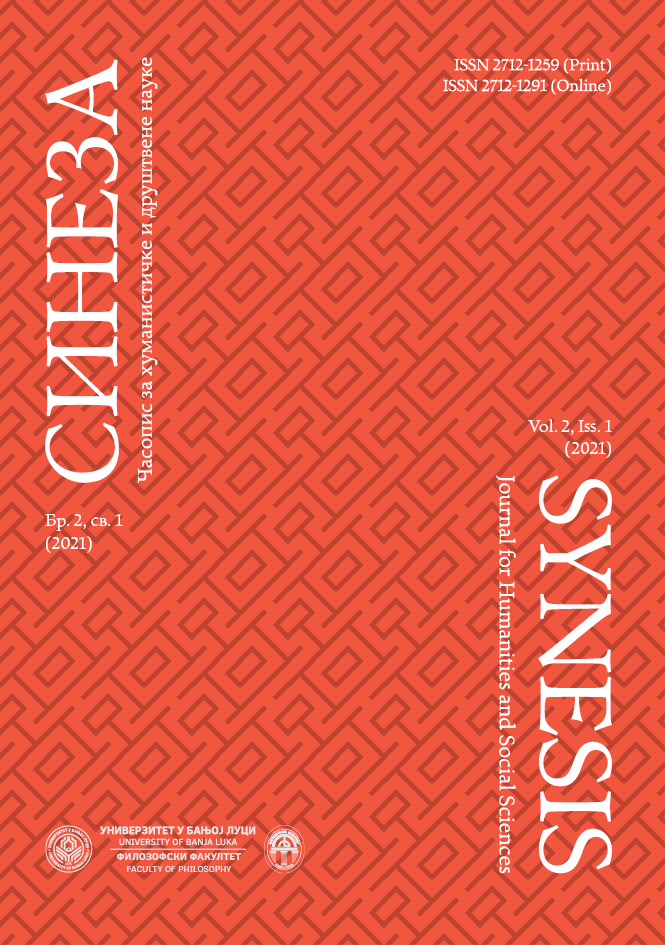Сложеност одрастања савременог дјетета у пјесничкој интерпретацији Драгомира Ђорђевића
The complexity of growing up for a contemporary child in the poetic interpretation of Dragomir Djordjevic
Author(s): Slobodan JovićSubject(s): Social Sciences, Language and Literature Studies, Education, Studies of Literature, Serbian Literature
Published by: Filozofski fakultet, Univerzitet u Banjoj Luci
Keywords: poetry; childhood; corporal punishment;
Summary/Abstract: The paper deals with the complexity of growing up as a theme within the poetry of Dragomir Djordjević, whose poetic oeuvre is one of the most important poetic ones intended for children in Serbian poetry of the second half of the twentieth century. Djordjevic’s poetry shows a distinct artistic awareness of the problems of the child in the modern world, which makes it extremely modern and challenging to interpret.The author notices three thematic-motive circles in Djordjevic’s poetry, which are connected with the complexity of a child’s growing up. First, there are songs in which the lyrical subject sings about the corporal punishment of the child, then about the ‘pedagogization’ of childhood, and about the emotionally endangered child. The author analyses a series of poems in which the physical punishment of a child is sung about. Physical punishment of a child is present in many cultures, although it can also be of a ritual nature. In Djordjevic’s songs, corporal punishment is carried out by adults over children with the aim of disciplining them and obeying the norms of the elderly. Education has been turned into one of the many activities that are planned, realised and evaluated, which leads to the development and improvement of cognition, but also to the stifling of creativity, imagination and play. Education has been torn out of the context of life and turned into a separate activity. From education through life, we have come to the conclusion that education is an activity of vital importance.In this paper, we have analysed the following poetic texts in which Djordjevic expresses an artistic critique of the educational procedure of physical punishment of children: ‘Little family song’, ‘Impossible song’, ‘Dad’s song’ and ‘Now I will tell you’..Technological advances and conformist lifestyles have led to parental preoccupation, and from the desired age of child we have the age of professionals dealing with children. Dragomir Djordjevic’s songs, which register the growing appearance of a lonely child, a child who hangs out with a limited circle of friends, are ‘Anka’ and Song for enjoyment’.Separating upbringing from the life context has created numerous psychological difficulties in the upbringing of modern children. A child’s difficulties shifted from existential to psychological ones. The pedagogy of childhood is at the centre of many problems of the modern child. It implies a pronounced segregation of the world of childhood and the world of adults, as well as the placement of children in safe havens - schools. Pedagogization also means the separation of a separate ‘children’s world’, which is protected from potentially bad environment. Dragomir Djordjevic’s poetic texts in which the artistic awareness of the difficulties caused by the pedagogy of childhood are expressed are: ‘I was a happy child’, ‘The bell rang again’, ‘Hey, how could ‘“, ‘It is not easy to be a child’.Dragomir Djordjevic’s poetry can help a young reader to cope more easily with parental punishments, with the problems imposed on them by school in the form of unbalanced demands, as well as with the emotional difficulties that accompany everyprocess of growing up. Djordjevic’s verses can help the reader to see that they are not alone in these temptations, and that others are going through similar problems.
Journal: Sineza
- Issue Year: 2/2021
- Issue No: 1
- Page Range: 117-129
- Page Count: 13
- Language: Serbian

